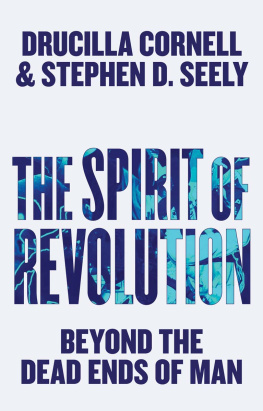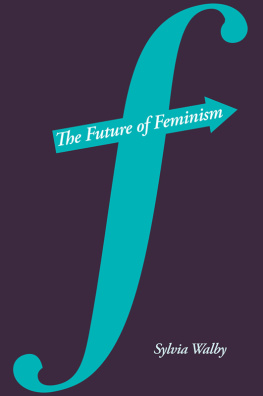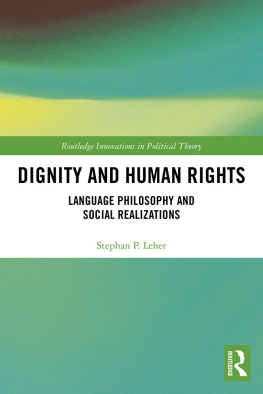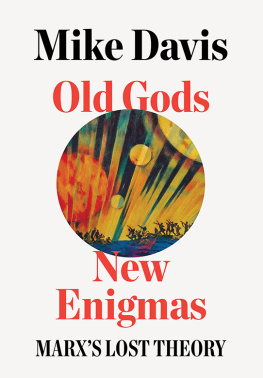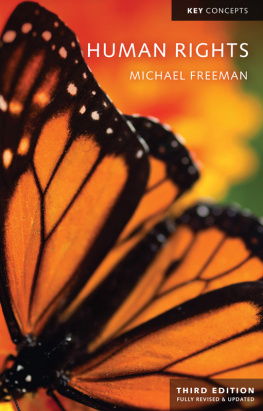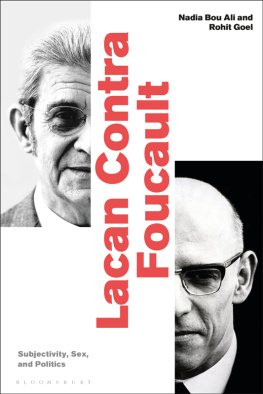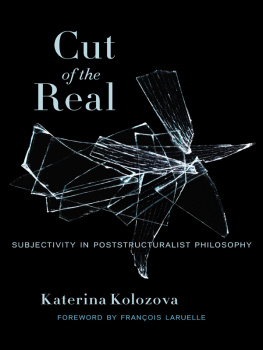Contents
Guide
Pages

To the Caribbean Philosophical Association for the work it makes possible
THE SPIRIT OF REVOLUTION
Beyond the Dead Ends of Man
Drucilla Cornell and Stephen D. Seely
polity
Copyright Drucilla Cornell and Stephen D. Seely 2016
The right of Drucilla Cornell and Stephen D. Seely to be identified as Author of this Work has been asserted in accordance with the UK Copyright, Designs and Patents Act 1988.
First published in 2016 by Polity Press
Polity Press
65 Bridge Street
Cambridge CB2 1UR, UK
Polity Press
350 Main Street
Malden, MA 02148, USA
All rights reserved. Except for the quotation of short passages for the purpose of criticism and review, no part of this publication may be reproduced, stored in a retrieval system, or transmitted, in any form or by any means, electronic, mechanical, photocopying, recording or otherwise, without the prior permission of the publisher.
ISBN13: 978-0-7456-9078-0
A catalogue record for this book is available from the British Library.
Library of Congress Cataloging-in-Publication Data Cornell, Drucilla.
The spirit of revolution : beyond the dead ends of man / Drucilla Cornell, Stephen D. Seely.
pages cm
Includes bibliographical references and index.
ISBN 978-0-7456-9074-2 (hardback) -- ISBN 978-0-7456-9075-9 (pbk.) 1. Political science--Philosophy. I. Seely, Stephen D. II. Title.
JA71.C5983 2015
320.01--dc23
2015012755
The publisher has used its best endeavours to ensure that the URLs for external websites referred to in this book are correct and active at the time of going to press. However, the publisher has no responsibility for the websites and can make no guarantee that a site will remain live or that the content is or will remain appropriate.
Every effort has been made to trace all copyright holders, but if any have been inadvertently overlooked the publisher will be pleased to include any necessary credits in any subsequent reprint or edition.
For further information on Polity, visit our website: politybooks.com
Acknowledgments
This book grew out of an earlier project, published in essay form in Social Text as Theres Nothing Revolutionary about a Blowjob.1 We are indebted to a number of people who helped us immensely when we worked on that essay and whose comments we hope, if they were not addressed in that text, have been incorporated here. Specifically, we wish to thank Ed Cohen for his extraordinary expertise on and passion for the work of Michel Foucault, his incisive feedback on our project, and his guidance in our search for the revolutionary Foucault. Emmanuela Bianchi pointed us to several contemporary texts that we should take into account in our discussion of feminist and queer theoryher astute criticisms spurred us to rethink some of the most important issues that we are raising throughout this book and to see them in a different light. We also want to thank our dear friend Maureen MacGrogan for her patient and insightful comments on the essay as well as the other material that became this bookwe hope that all of her thoughts have been integrated here. Additionally, we received incredible support and commentary from two people at Social Text during the publication process, namely the editor Alex Pittman and the late Jos Esteban Muoz. Our essay, and subsequently our book, are much better off as a result. Additionally, we were privileged to receive several invitations to present the essay publicly and we deeply thank the organizers, as well as the audiences and fellow participants, at those events: the 2013 Historical Materialism Conference at New York University and Erin Schell, the 2013 Feminist Theory Workshop in the Department of Jurisprudence at the University of Pretoria organized by Karin van Marle, and the Department of Religion Studies at the invitation of Farid Esack.
Our collaboration on this project has reminded us that writing and thinking are not necessarily arduous tasks, but joyful and collective activities. This is not a book that we divided among ourselves and wrote individually; rather, we spent hours and days at a kitchen table hashing out every idea and writing every sentence together. This joy in collaborative writing and thinking is part of the reason we have dedicated this book to the Caribbean Philosophical Association, which provides an invaluable space for rich, innovative, and collective thought, without which this book would have never been possible. We sincerely thank Jane Gordon, Lewis Gordon, and Paget Henry for their institution-building as well as their truly pathbreaking and inspirational work to which we are returned at every step of our writing. We also want to thank Michelle Stephens whose innovative seminar on Race and Psychoanalysis in 2011 and whose own creolized readings of the major psychoanalytic thinkers were instructive in our work with Frantz Fanon and Jacques Lacan in this book. Over the past five years, our friendship with Carolina Alonso Bejarano and Max Hantel has been a constant source of insight and support to us both. That friendship is reflected in the pages of this book. We must also thank our editor at Polity, Jonathan Skerrett, for soliciting, supporting, and believing in this project and for giving us a wonderful space to develop it.
We wish to express our deep and profound gratitude to Sarita Cornell and Keith Hoffman, whose unwavering care and love both enable our work and give it meaning. The imaginative way that they see the world powerfully reminds us always to keep our own imaginations open. Finally, in the course of this collaboration, we have recognized that there is a debt to the mother that can never be paid but that, as Luce Irigaray reminds us again and again, must also not be erased. This debt, following Jacques Derrida, is a kind of inheritance that is precisely what commands us to hold the future open. We read the demands of intergenerational debt and inheritance very differently than certain strands of queer theory and we manifest that difference in our recognition of the maternal debt: to Mildred Kellow, Barbara June Cornell, and Susan Seely, in honor of those who have brought us forward and those who have left us behind.
Notes
Theres nothing revolutionary about a blowjob.
Social Text 32(2): 123. 2014, Duke University Press. Republished by permission of the publisher.
Introduction
After Revolution? After Man?
Following the fall of the Berlin Wall and the collapse of the Soviet Union it would seem that the idea of revolution has been swept into the dustbin of history, or at least into the dustbin of the Euro-American academy. Even within feminist and queer theory, two of the academic discourses ostensibly most devoted to sweeping transformation, the word scarcely appears in most of the work written over the past three decades. Our purpose here is not to offer an extensive investigation into the reasons for this postrevolutionary turn. Certainly part of it is a general air of pessimism that has swept through critical theory in the face of the failures of the so-called Communist states to actualize the great socialist aspirations and the ruthlessness of advanced capitalism that has created inequalities of world historical proportions, let alone the never-ending war, horrific structural violence, and brutal suppression of revolutionary movements that plague our world today (see Cornell 2008). The Marxist dream of a revolution toward an emancipated humanity and a classless planetary society is, we are told even by supposedly leftist thinkers, a hopelessly romantic and impossible metanarrative that relies on bad pretensions to scientific truth and problematic assumptions of an originary human nature. Moreover, revolution, the story goes, is inextricably connected to a hubris of humanism that cannot survive the death of Man in late twentieth-century European philosophy, a hubris that sees Man as the maker of his own world and therefore as having the power to change it. Feminist and queer theory, of course, have long highlighted and critiqued the phallocentrism and heteronormativity inherent in all forms of humanism and, as such, for several decades now they too have largely relinquished revolution as a necessary part of overcoming Man.

